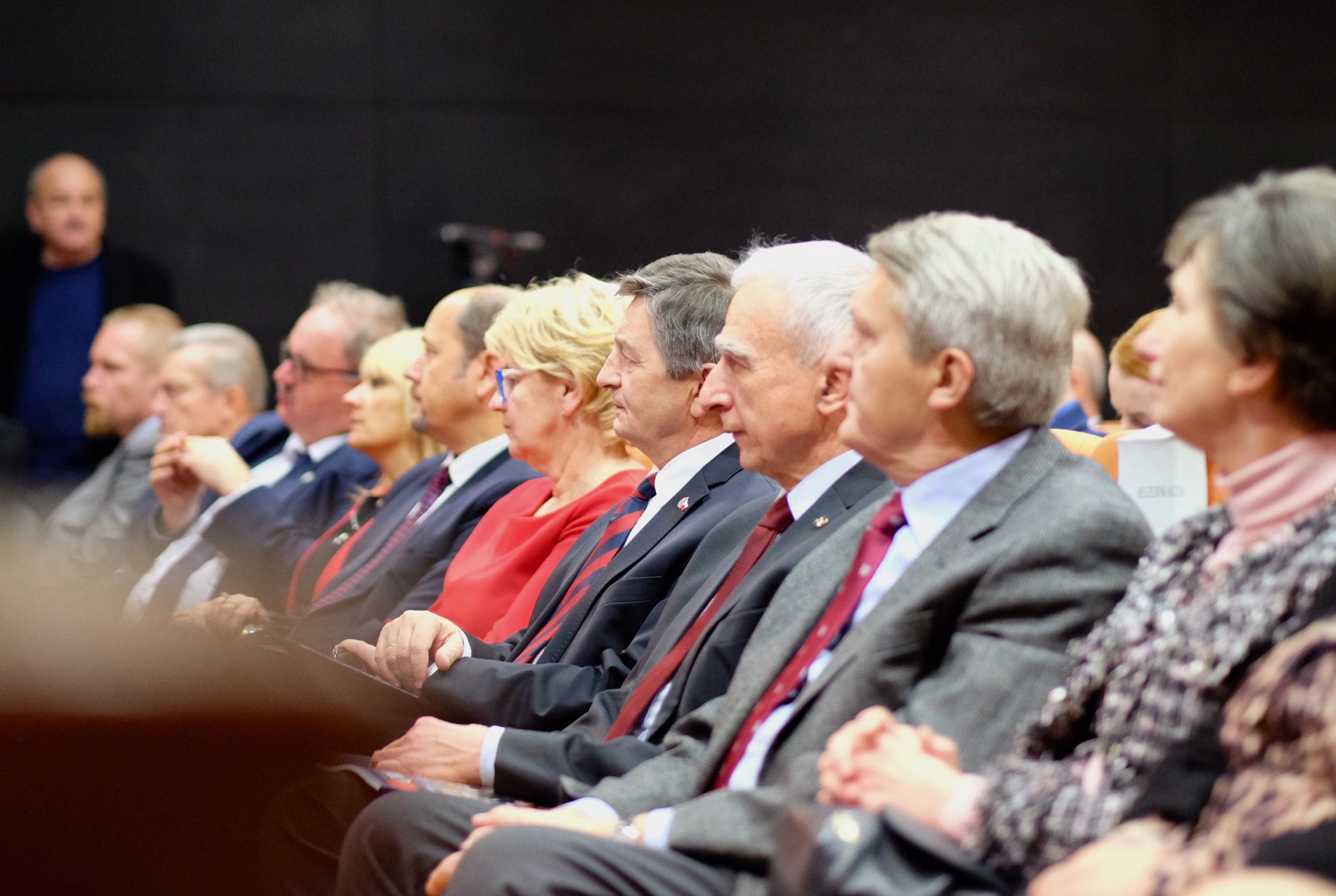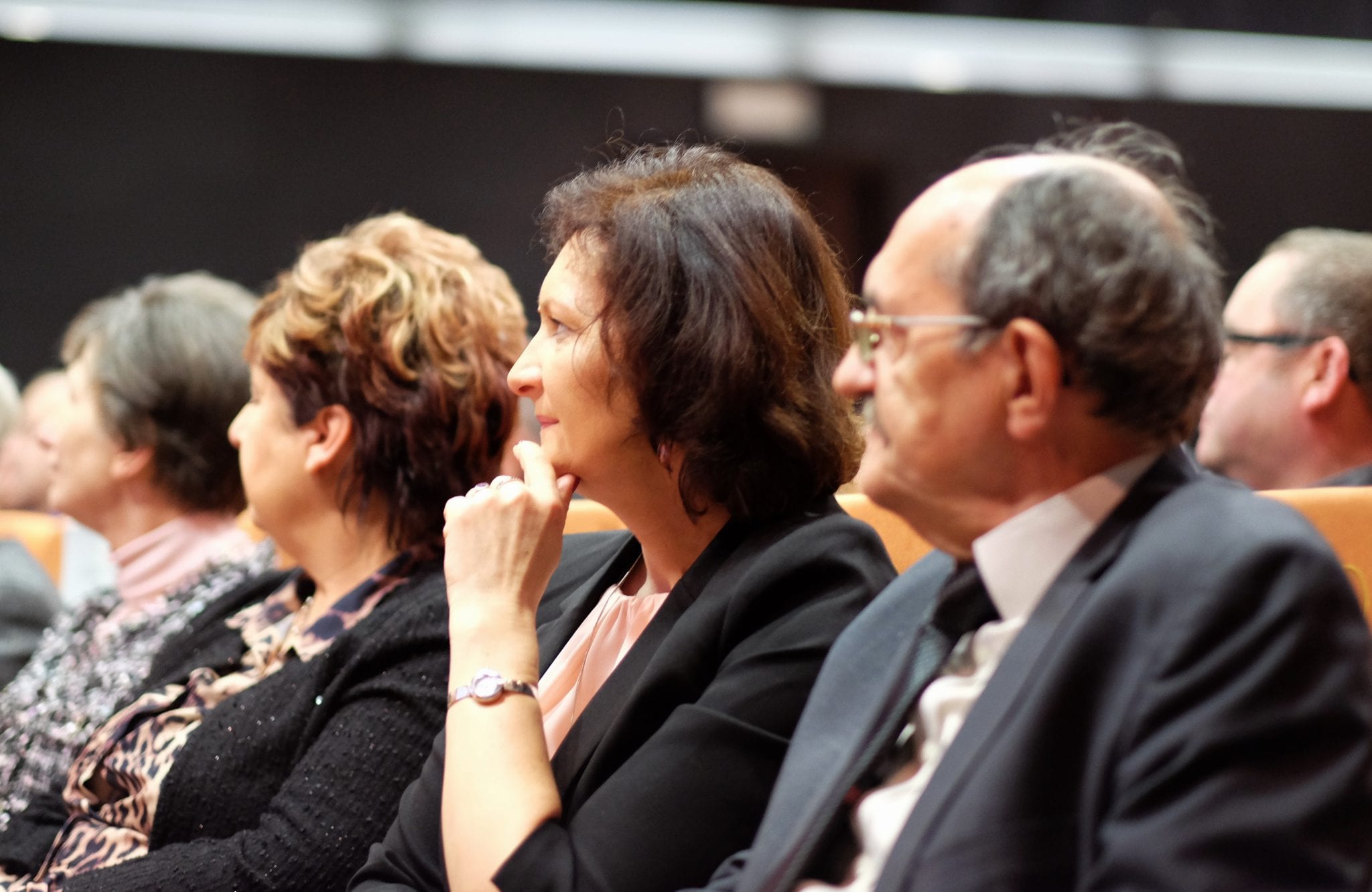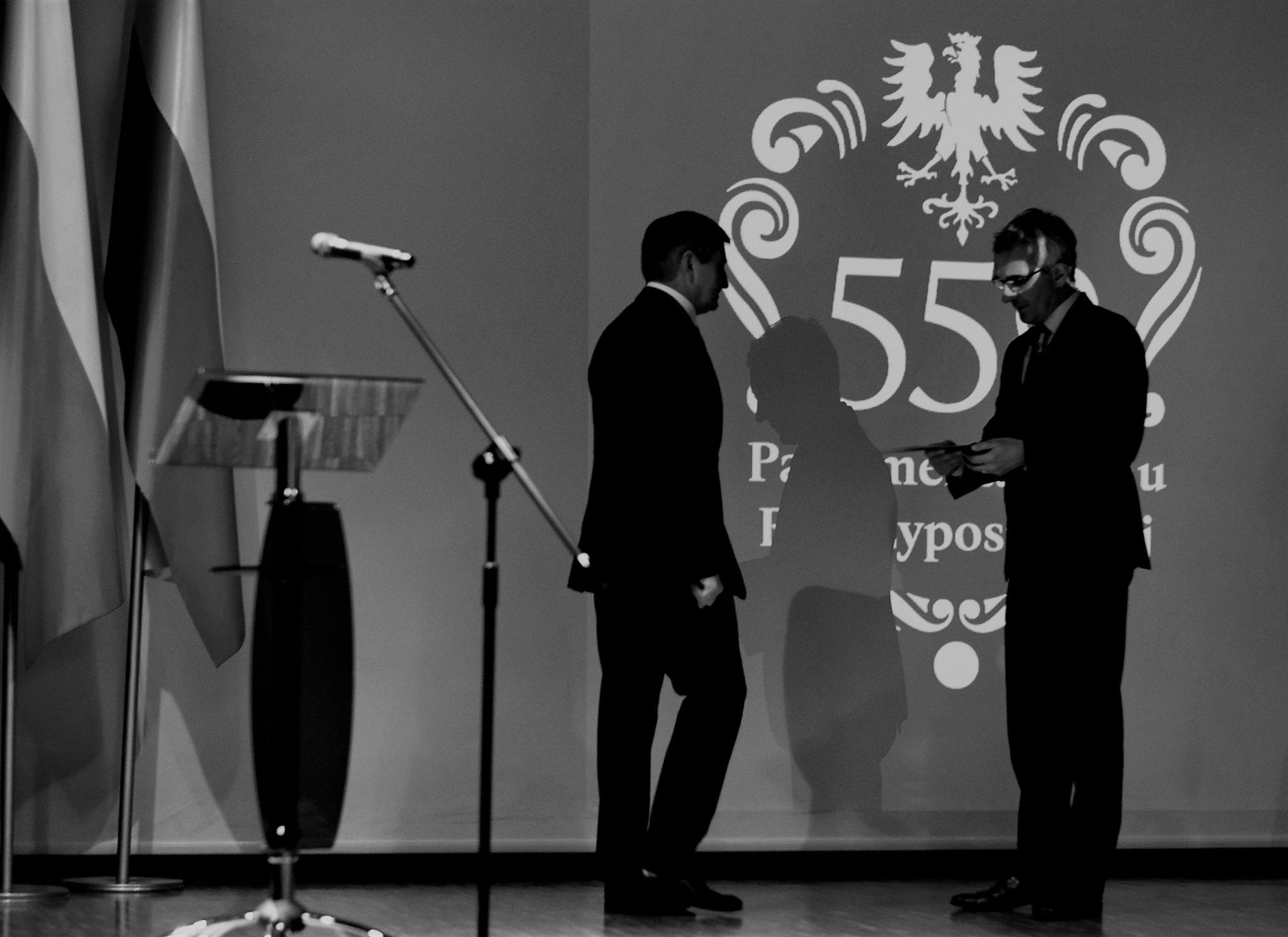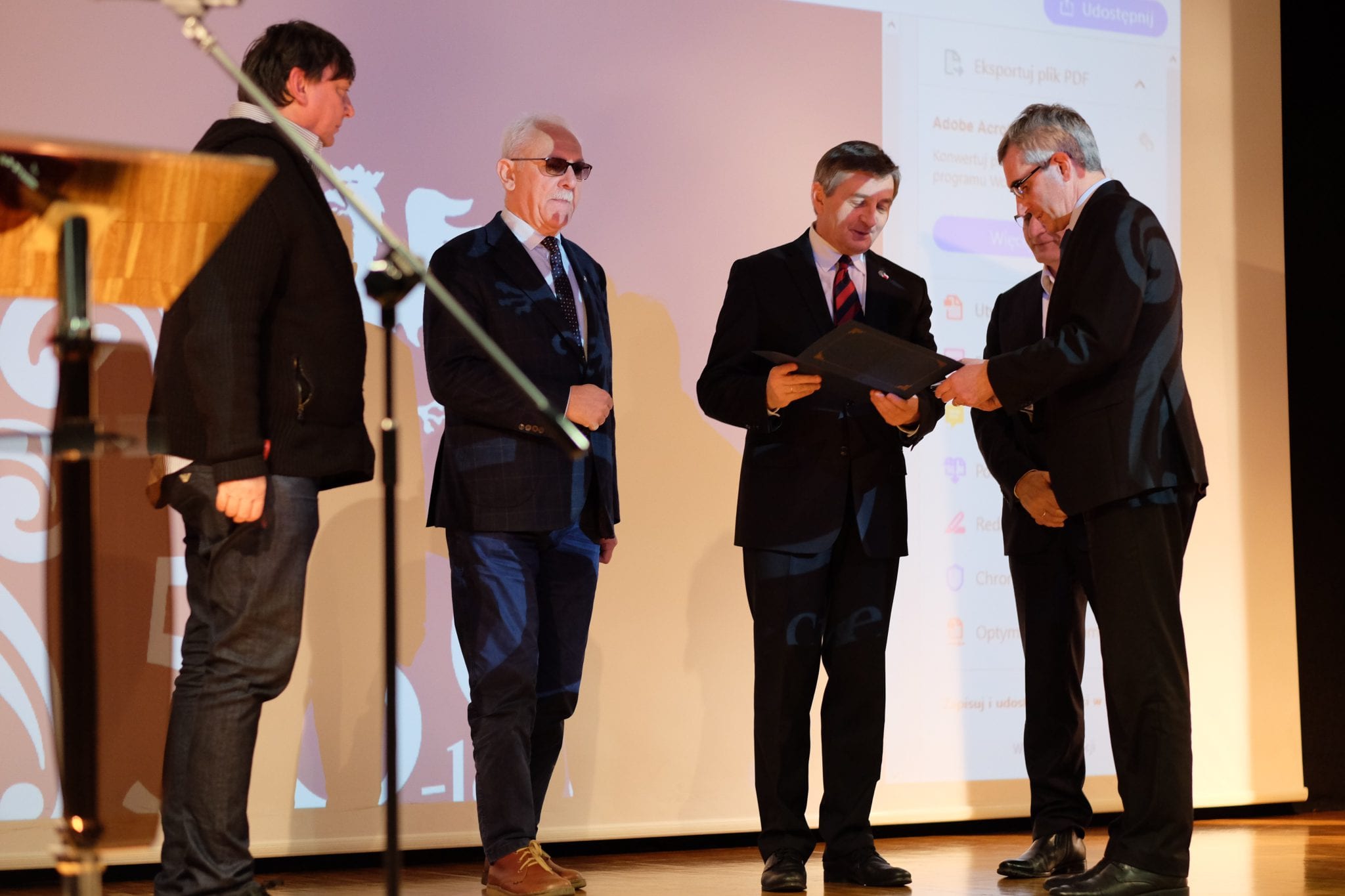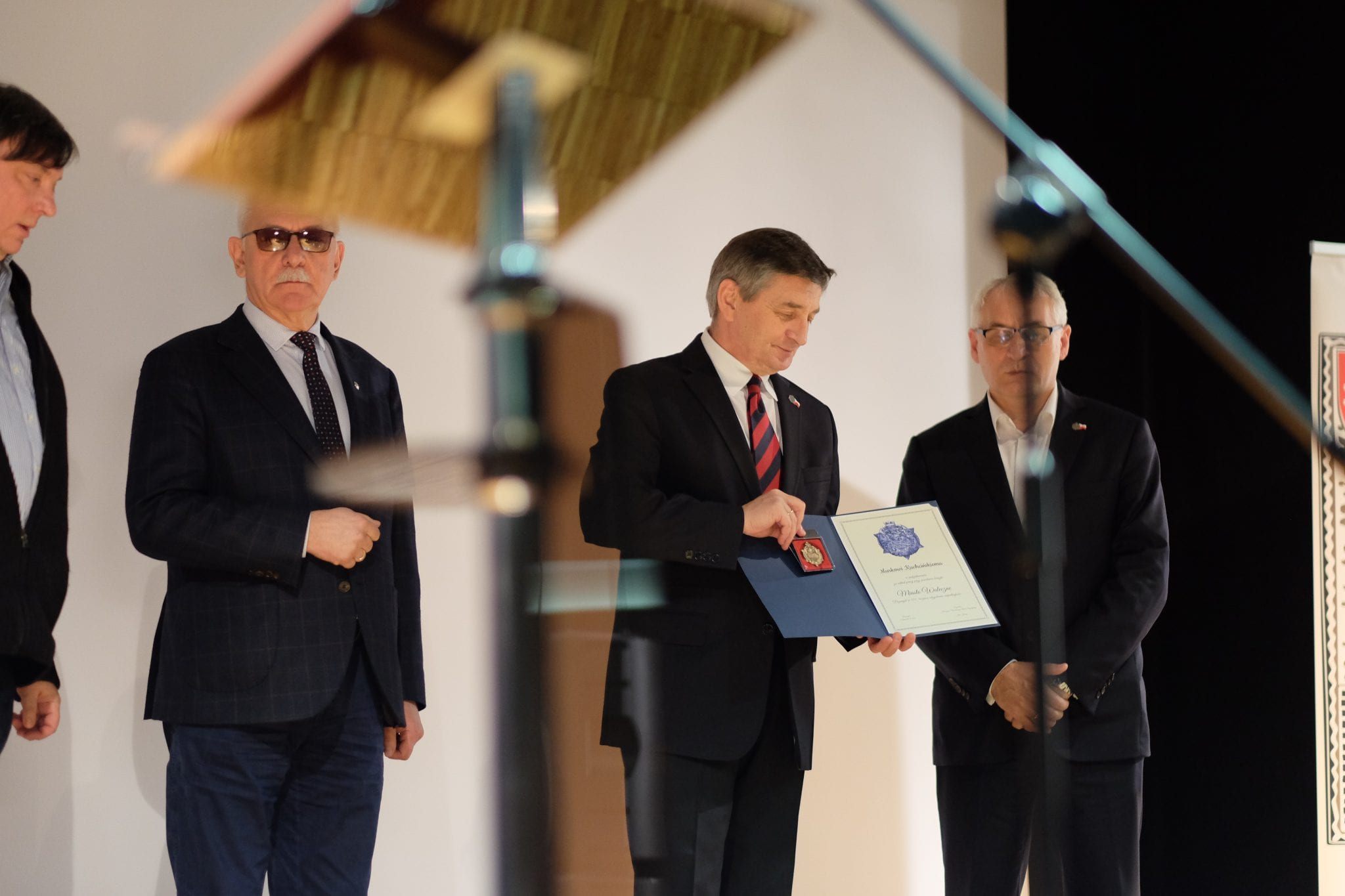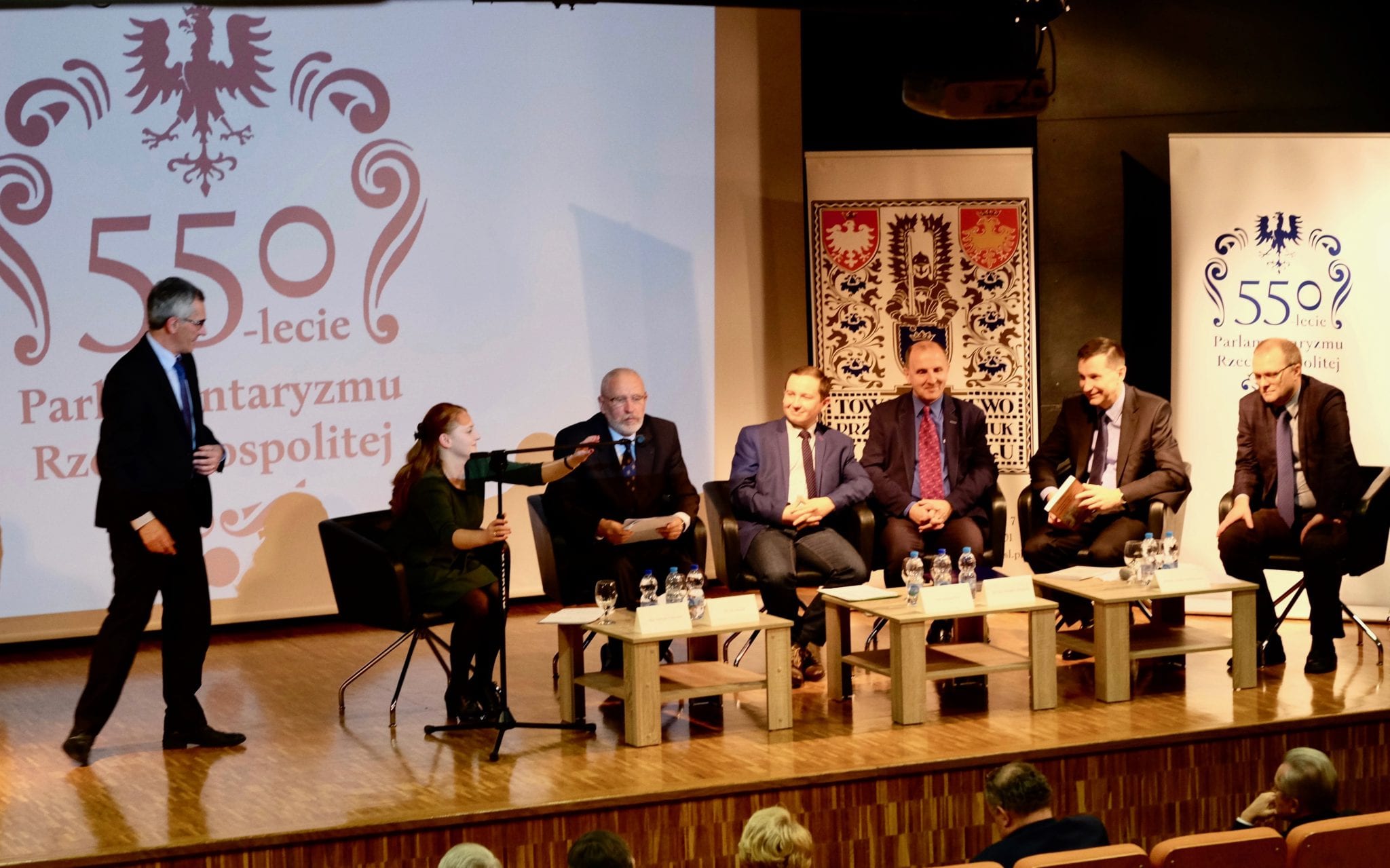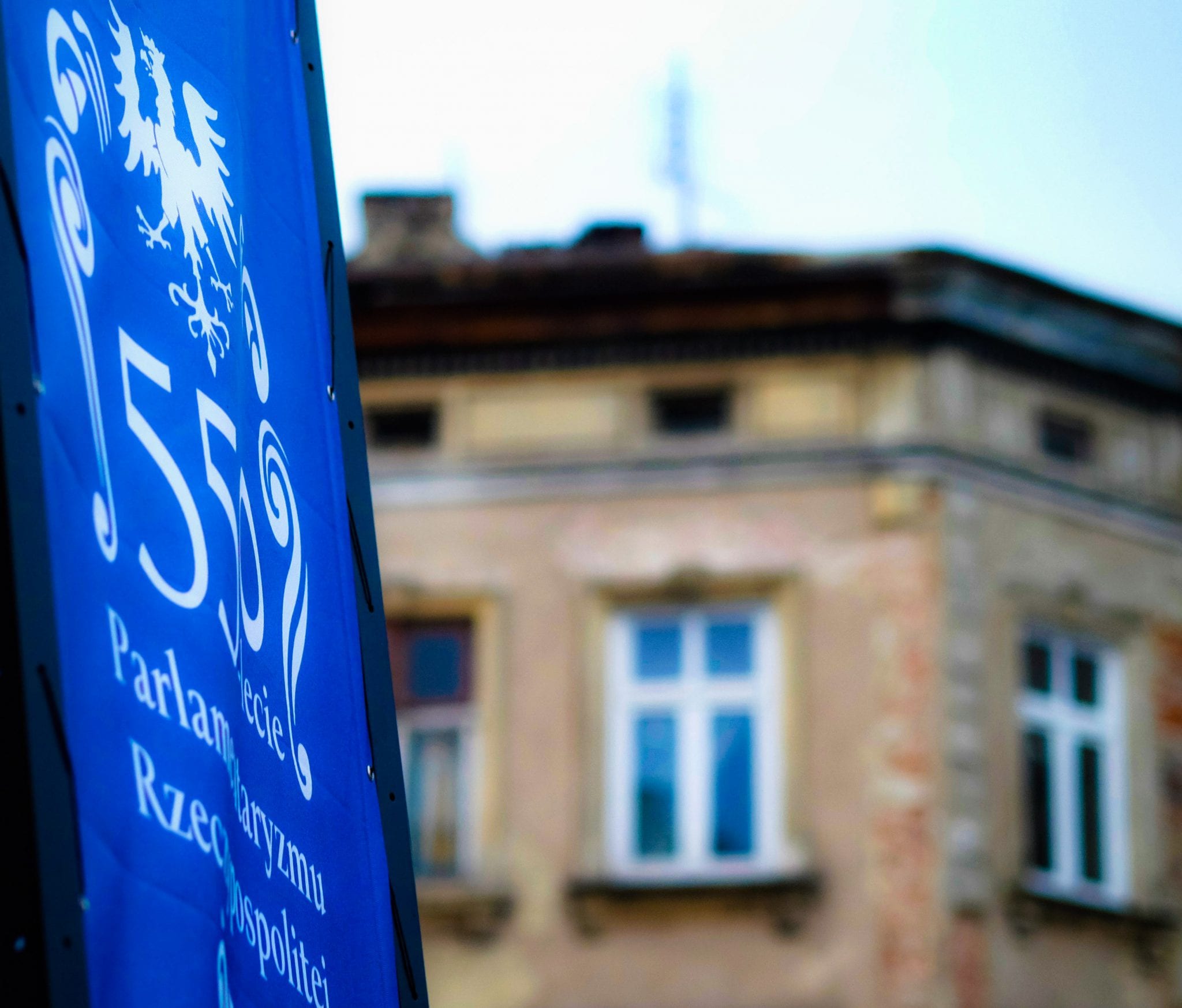This year we celebrate the 550th anniversary of the Parliamentarism of the Republic of Poland. In 1468 the Seym of the Kingdom of Poland was established in a bicameral form: the Senate and the Chamber of Deputies. King Casimir Jagiellon, an eminent representative of the Jagiellonians - a great Central European dynasty, invited deputies elected at regional assemblies to discuss the matters of the then state - our Republic," recalled Marek Kuchciński, Speaker of the Sejm, during celebrations marking the 550th anniversary of Polish parliamentarism.
The Marshal emphasized that this is how the Polish parliamentary system was created, consisting of the king, the senate and the chamber of deputies. And it lasted for centuries, with the Sejm expressing the interests of the state and realizing its sovereignty, i.e. making laws, taking the most important decisions, including those concerning war and taxes. It became a place of compromise between the king and the political people, representing the popular will, that is, the inhabitants of all lands.
The Polish parliamentary tradition was shaped in an area where many ethnic groups and cultures, religions and confessions, customs and traditions intermingled. It became an inspiration for the inhabitants of many lands: Poland, Ruthenia - White, Black and Red Ruthenia, Lithuania, Courland, Livonia, Moldavia and Prussia.
In Sądowa Wisznia, a town located east of Przemyśl, the Sejmik of the Lvov, Przemysl and Sanok regions was meeting.
Politicians important to our national history came from the Przemyśl area. They were, among others: Andrzej Maksymilian Fredro - Speaker of the Chamber of Deputies, an eminent philosopher, founder of the monastery and church in Kalwaria Pacławska; Stanisław Jan Jabłonowski - Senator, Great Hetman of the Crown and Voivode of Ruthenia; Stanisław Sarnowski - Bishop and Great Referendary of the Crown. In Przemyśl worked outstanding humanists: Jan Herburt - the author of many works about diplomacy, considered to be classics in Europe, and Stanisław Orzechowski - who wrote about Poles as eagles, for whom freedom is a synonym of Polishness, the foundation of the political system and the basic value.
The conferences organized to commemorate the 550th anniversary of Polish parliamentarism show the uniqueness of the Sejm at its beginnings, which permanently influenced the national identity not only of Poles but also of other inhabitants of our part of Europe. Marek Kuchciński emphasized that parliamentarism became the foundation of political culture in Central Europe and enabled the formation of political subjectivity based on freedom, understood in republican terms, that is, participation in political life.
The Marshal reminded that in 1505 the political principle "Nothing about us without us" was adopted. The success of the Polish-Lithuanian Commonwealth - a unique civilization in Europe - proves how solid this foundation was. - Its fate determined the identity of both the modern Polish statehood reborn 100 years ago and today's Poland - said Kuchciński.
On behalf of the historical community the conference was inaugurated by Prof. Dariusz Kupisz from Maria Curie-Skłodowska University in Lublin. The historian drew attention to the fact that the research of Prof. Waclaw Urszczuk indicates the year 1468 as the culmination of a long process of forming parliamentary representation with the authority to make decisions on behalf of the voters. - Sejm sessions were convened already several decades before 1468, but even though the nobility participated in them in large numbers, they did not represent the voters. The mechanism of electing deputies emerged only later - explained Prof. Kupisz.
Professor Zbigniew Rau from the University of Łódź spoke about the importance of 17th century political thought for the national identity of Poles. According to him, the politics of that period was characterized by subjectivity and sovereignty. - It was a policy practiced by the citizens of the Republic of Poland, not foreign powers, and it served the cause of the state of the Republic of Poland. In later generations Polish politics came down to either winning independence or the policy of conciliation', said Prof. Rau.
Dr Marek Tracz-Tryniecki from the University of Łódź discussed Andrzej Maksymilian Fredro's participation in the first Diet of 1652, emphasizing that Fredro was one of those people who protested against the breaking off of the session. - He was the greatest individual and the greatest Speaker of the Sejm during the reign of Jan Kazimierz. As Speaker of the infamous Sejm of 1652, Fredro became known as a parliamentarian of exceptional stature. He was able to combine republican ideas with a certain independence towards both the court and the radical opposition, with a desire to raise the political status of the Sejm to a higher level.
Dr. Lucjan Fac, representing the National Museum of the Przemysl Region, referred in his speech to Marshal Kuchciński's presentation of flowers at the plaque commemorating Andrzej Maksymilian Fredro at the Saint Anthony of Padua Church in Przemyśl. - Standing at the grave of Andrzej Fredro, I felt very fulfilled as a historian. The Marshal's Guard of the Sejm of the Republic of Poland standing by this epitaph is a beautiful image that was due to our compatriot," he said.
The parliamentary activity of the Herburt family representatives was presented by Justyna Gałuszko of Jagiellonian University. -The formation of the political principles of the Polish-Lithuanian Commonwealth took place with the active participation of the Herburt family from the Przemyśl area, and two centuries of the family's existence made them famous for their education, chivalry and devotion to the Catholic faith," pointed out Gałuszko.
The political thought of Stanisław Orzechowski was the subject of a lecture by Dr. Jan Musiał of the East European State School in Przemyśl. - He was one of the main creators of the concept of noble freedom and the movement for the defense of the rights of the nobility. He wrote about Poles as eagles for whom freedom is synonymous with Polishness, the foundation of the system and a fundamental value.
The mechanism of functioning of the pre-sejm sejmiks in Sądowa Wisznia in the 17th century was presented by Dr Andrzej Król from the Society of Friends of Science in Przemyśl. - The procedures of the sejmiks in Wiszów, which represented the sejmiks from the lands of Lwów, Przemyśl and Sanok, were similar to the rules of other Crown sejmiks. The lack of written rules regulating its functioning indicates the dominating role of practice and customs - emphasized dr Król.
Speaking about the parliamentary representation of the Przemyśl region in the Saxon times, Professor Wiesław Bondyra from the Maria Curie-Skłodowska University (UMCS) pointed out that although in that period no model for improving parliamentary life was implemented, the first postulates about the necessity of introducing a majority voting system appeared. - They did not give up formulating slogans of freedom, but seeing the progressing collapse of the Polish state, also MPs from Przemyśl were in favor of greater centralization of state power and reform of the debates - he explained.
The last speaker was Prof. Adam Perłakowski from Jagiellonian University, who in his speech sought an answer to the question whether the parliamentarism of the era of Stanisławów was a new quality or a creative continuation. Professor Perłakowski pointed out that the era of Stanislaw Law was the time of confederations, and when debates were held in this form none of the sejms was broken and ended with a legislative success. - The Stanislaus times are a perfect example of the birth of a new sense of citizenship. Research shows that since the Four-Year Sejm, which introduced a number of reforms, Poland has developed the awareness that key changes in the country cannot be implemented without the participation of the Sejm, because the strength of the nation are wise, responsible deputies guided by the common good", said Prof. Perłakowski.
During the conference the Director of the Przemysl Land Museum, Jan Jarosz presented the authors of the publication "City of Valour. Przemyśl on the 100th Anniversary of Regaining Independence" reconstructed from 1918. The Star of Przemysl in gratitude for their contribution to the creation of the book. The publication was published by Wydawnictwo Sejmowe, and its co-authors are Marek Kuchciński and Deputy Speaker of the Sejm Ryszard Terlecki.
The conference was preceded by Holy Mass in the Archcathedral Basilica of Saint John the Baptist and the Assumption of the Blessed Virgin Mary. In turn, at the end of the day, a concert of independent songs from Sarmatia to Legions took place in the Cultural Centre in Przemyśl.
The event was attended by members of parliament, local government, historians and museum workers. Among the guests were Adrienne Körmendy, Consul General of Hungary, Podkarpackie Governor Ewa Leniart, and Podkarpackie Deputy Marshal Piotr Pilch.
Photo by M. Olejnik


